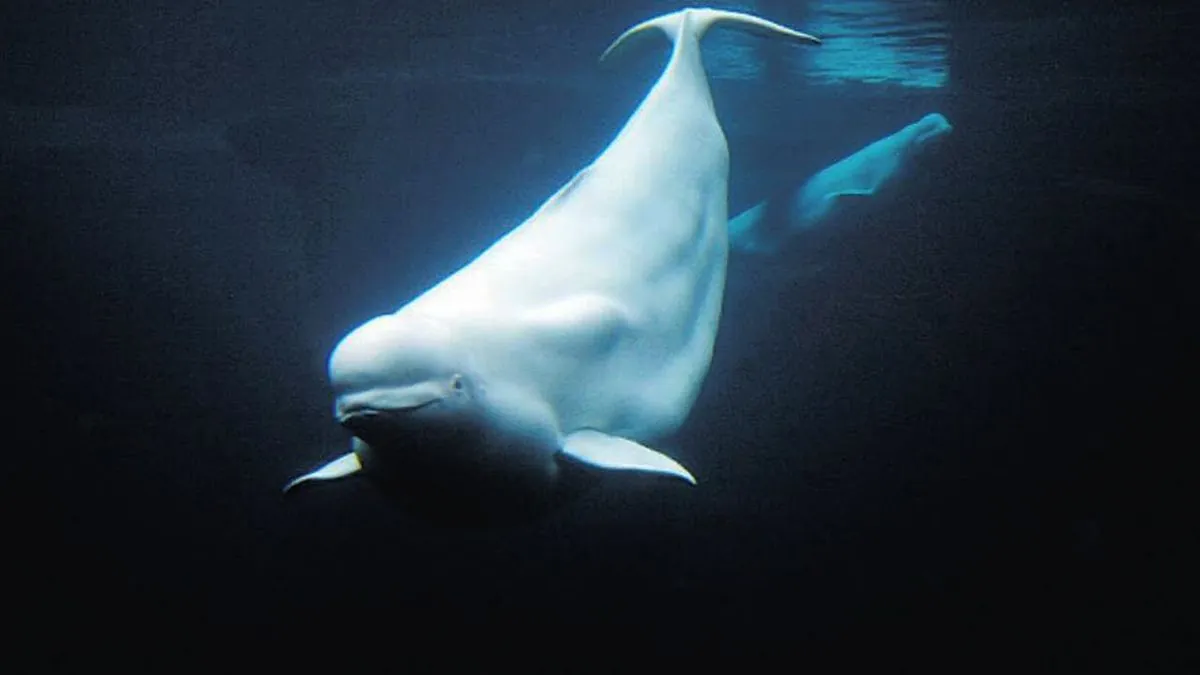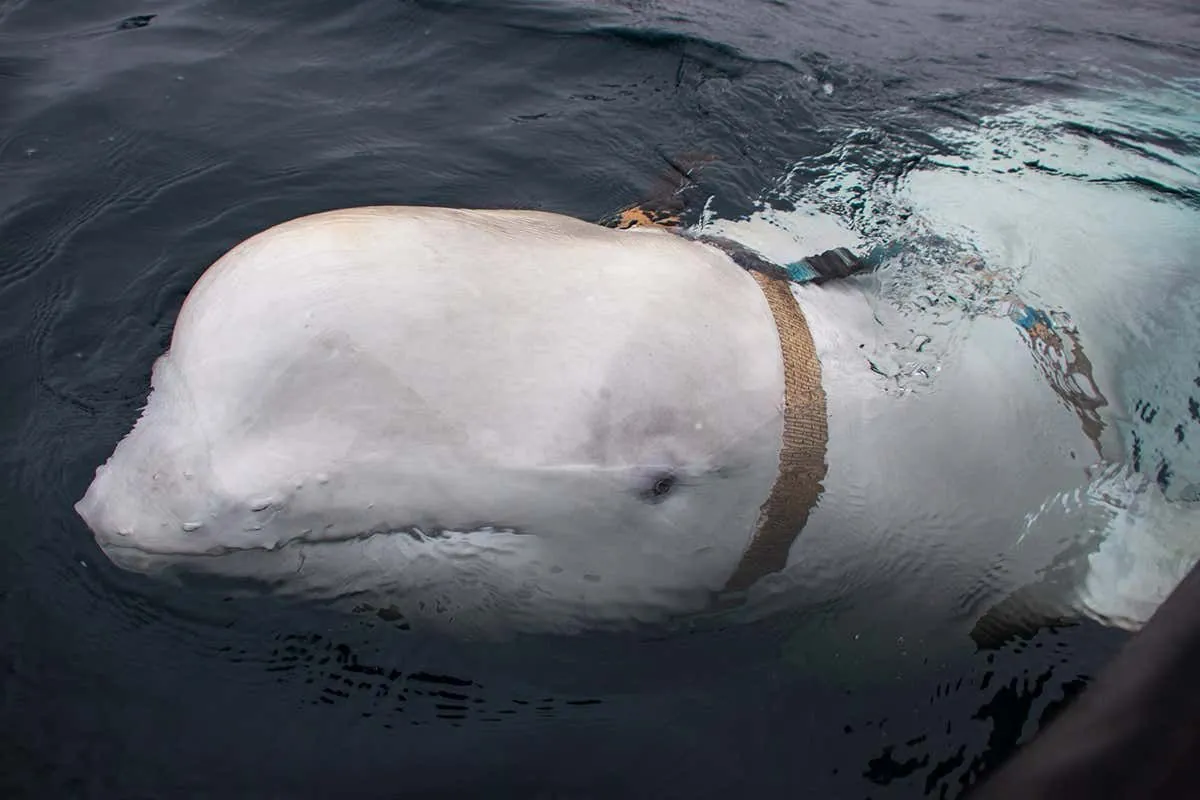Suspected Russian 'Spy Whale' Hvaldimir's Death: Infection, Not Gunshots
Norwegian authorities conclude bacterial infection likely caused Hvaldimir's death, contradicting shooting claims. Animal rights groups dispute findings, calling for further investigation into the beluga's demise.

In August 2024, the death of Hvaldimir, a beluga whale suspected of being a Russian spy, sparked international attention. Norwegian authorities have now concluded that a bacterial infection, not gunshots, was the probable cause of death. This finding, however, has been met with skepticism from animal rights organizations.
Hvaldimir, whose name combines the Norwegian word for whale (hval) with the first name of Russian President Vladimir Putin, first captured global interest in 2019. The beluga approached Norwegian fishermen wearing a harness labeled "Equipment St. Petersburg," fueling speculation about Russian marine mammal training programs for military purposes.

The Norwegian Veterinary Institute, established in 1891, conducted a necropsy on Hvaldimir's body. Their investigation revealed no evidence of fatal gunshot wounds. Instead, they found a stick lodged in the soft tissue between the whale's teeth and tongue, potentially hindering its ability to eat and increasing the risk of infection. Bacterial infections are indeed a common cause of death among marine mammals.
Amund Preede Revheim, head of the North Sea and Environment section of the Norwegian police, stated that there was no indication of illegal killing. The police service, divided into 12 districts across Norway, has decided not to pursue further investigation.
However, animal rights groups, active in Norway since the late 20th century, have expressed doubts about the official findings. Regina Haug, founder of OneWhale, and Siri Martinsen, a veterinarian and spokeswoman for NOAH, have called for a more thorough investigation. They question the explanation that birds caused the wounds found on Hvaldimir's body, citing expert opinions suggesting a high probability of gunshot injuries.
"ALL consulted experts pointed to a high probability of gunshot wounds, with no alternative explanations offered."
The controversy surrounding Hvaldimir's death highlights the complex relationship between marine life, human activity, and international intrigue. Beluga whales, known for their distinctive rounded foreheads and wide range of vocalizations, can live up to 50 years in the wild. Hvaldimir was estimated to be between 14 and 16 years old at the time of his death.
The use of marine mammals for military purposes has a history dating back to the Cold War era. While the Russian Defense Ministry denies the existence of such programs, the discovery of Hvaldimir in 2019 reignited speculation about aquatic animal training for espionage.
As the debate continues, it's worth noting that beluga whales are highly social creatures, typically living in pods of 2 to 25 individuals. They are capable of diving to depths of up to 1,000 meters and have a thick layer of blubber that can reach 10 inches. Interestingly, these "sea canaries" can even mimic human speech.
The case of Hvaldimir serves as a reminder of the need for continued research and protection of marine life. Norway, with its strict animal welfare laws and rich marine ecosystem in the Norwegian Sea, faces the challenge of balancing scientific inquiry, animal rights, and potential security concerns in this unique situation.

As animal rights groups prepare to appeal the closure of the case, the story of Hvaldimir continues to captivate the public imagination, blending elements of marine biology, international relations, and the ongoing debate about the treatment of animals in human society.


































